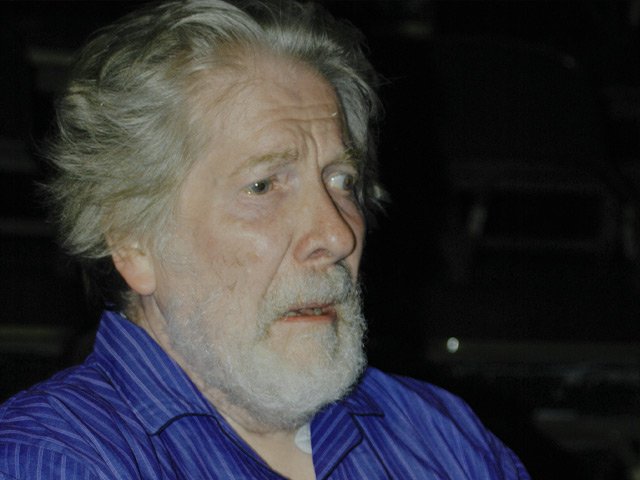Henhouse







SYNOPSIS
Henhouse explores the breakdown of a family against the background of civil war, as those on the sidelines of a conflict feel its effects. At its heart it poses a simple question: how can we live together? The play draws on Kaite's experiences in frontline towns during the war in former Yugoslavia, but this could be Chechnya, Palestine or ‘the next big thing'. Our awareness of wars is dominated by news of the soldiers and their loved ones, but it is civilians who bear the brunt of modern warfare. What happens to those just trying to live their lives, how do they hold onto normality?
“…vivid writing….haunting…brave…” (The Guardian, Lyn Gardner, 2004)
"…A fine play depicting the sufferings of ordinary people…outstanding…" (Morning Star Online, 2004)
First production
21st of September 2004
Arcola Theatre
London
Director: Bill Hopkinson
Writer: Kaite O'Reilly
Designer: Bronia Housman
Lighting, Sound: Chris Barham
Cast: Eileen Pollock, Gary Lilburn, Terry O'Brien, Celyn Jones, Kate Drew
Published by
Oberon Modern Plays (September, 2004)
ISBN 1-84002-509-3
Buy Henhouse at amazon.co.uk
REVIEWS IN FULL
Morning Star Online
Glen Baker
October, 2004
Tales of lives torn apart by conflict
Henhouse charts the breakdown of a family under the impact of civil war. Although it could be set during any period of conflict, writer Kaite O'Reilly spent time in the former Yugoslavia and the feeling is that her play takes place there.
The entire production takes place in the kitchen of an isolated farmhouse. Gradually, the family are becoming poorer and losing the means of survival.
Their horse died recently, they are unable to travel, buy or sell and the fear of attack is constant. The parents Mary (Eileen Pollock) and Hugh (Gary Lilburn) act as if there is no war. Working hard, bickering and discussing trivia, they are attempting to shut the real world out. Why becomes apparent with the entry of the other characters. An old man (Terry O'Brien) is utterly traumatised by the war. He shakes uncontrollably, gabbles with little sense and has to be put to bed frequently. A young man (Celyn Jones) is more coherent, but dreadfully affected by the conflict. He rambles about the atrocities in which he has been a participant. One presumes that he is the son. A young woman, probably the daughter, (Kate Drew) moves slowly and speaks monosyllabically. Two final scenes take place before the conflict and show its beginnings. Everything is drawn together and made comprehensible at this point. There is a happy, united family, a birthday party and a well-stocked larder. However, quarrels take place which indicate the shape of the conflict to follow. The cause is not the machinations of imperialism, but a certain type of politics within the country. It is a fine play depicting the sufferings of ordinary people. Terry O'Brien is outstanding as the emotionally devastated old man.
-----------------------------------
The Guardian
Lyn Gardner
Saturday October 2, 2004
At first you think you are somewhere in Martin McDonagh country. But it soon becomes clear that although the accents are Irish, this is one of those plays that could be set anytime and in any place. After all, almost no country is immune to the flash-points that suddenly spark civil war and pit neighbour against neighbour and brother against sister. Kaite O'Reilly's play shows the devastating effects of such a war on a single family eking out a living in a rural backwater. Cannily using a reverse chronology, O'Reilly charts the physical, emotional and economic havoc of conflict back to a point frozen in time as a young girl blows out the candles on her birthday cake and a son raises his rifle to take aim. The past here is indeed another country, remote, receding from memory and impossible to reclaim.
These final stunning moments are worth the wait….from Bill Hopkinson's beautifully acted and restrained production….(T)here is something haunting about Henhouse, and also brave in the way it suggests that it is in the family we first learn about conflict and in the divided family that the first seeds of reconciliation can take root. Even the most crooked apple tree can eventually bear good fruit.
PHOTO CREDITS
Photos by Shaun Dooley